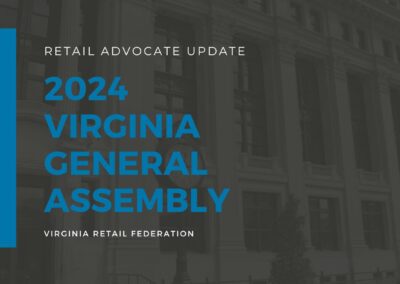As you may be aware, OSHA issued the Emergency Temporary Standard (ETS) that requires employers with over 100 employees to mandate the COVID-19 vaccine for all employees. Below is a brief summary of the Standard provided by the National Retail Federation.
Over the weekend, the 5th Circuit Court of Appeals issued a Stay (temporary stop) on enforcement of the ETS until it could be further reviewed by the court. This review could happen very quickly, so it is important for employers with more than 100 employees to review the ETS, and be prepared to implement all requirements if the Stay is lifted.
We will keep you informed as more information becomes available.
EMERGENCY TEMPORARY STANDARD (ETS) SUMMARY:
By December 5, employers must:
Assess their workforce to determine who is and who is not vaccinated. Must categorize into:
- Vaccinated. Employers cannot take employees’ self-attestation. Employers must see their vaccination cards and we must threaten them with criminal penalties for filing fraudulent information.
- Unvaccinated and willing to get the shot. These workers must then start the process of vaccination to avoid weekly testing. Workers need to have received BOTH SHOTS by January 4, 2022. Thus, they must start the Pfizer regiment by December 14 or the Moderna regiment by December 7. Employers must offer up to four hours of paid time off, including travel time, at the employee’s regular rate of pay per dose for employees to get vaccinated. Employers may not require employees to draw down vacation time for this purpose. Employers must provide paid sick leave for a “reasonable time” to employees to recover from side effects but can insist this leave come from accrued time off.
- Those for whom a vaccine is medically contraindicated.
- Those for whom medical necessity requires a delay in vaccination.
- Those legally entitled to a reasonable accommodation under federal civil rights laws because they have a disability or sincerely held religious beliefs, practices, or observances that conflict with the vaccination requirement.
- Refusers
Impose a mask mandate for unvaccinated employees. Mask must always cover the nose and mouth while working indoors. Masking required when occupying a vehicle with another person for work. when an employee is alone in a room with closed door. No masking required while the employee is eating or drinking. No masking required if it “creates a greater hazard.”
Employers must inform each employee about:
- The requirements of the ETS
- Any employer policies and procedures established pursuant to the ETS.
- The efficacy, safety, and the benefits of the COVID-19 vaccine, specifically a copy of this document: “https://www.google.com/url?q=https://www4.retailmerchants.com/e/234172/iA7TKteGXC2FpI7t43D-reserved-0/2ns76t/430211076?h%3D8ZZOQbyF8m_Bh-MV_xM1y2TnVTeFc4Gkwy37kJWcuAU&source=gmail&ust=1636743499109000&usg=AOvVaw127HAa3NoxUmu-y4C1GBlV” style=”color: rgb(17, 85, 204); text-decoration: none;” rel=”noopener”>Key Things to Know About COVID-19 Vaccines”
- The fact that employers are prohibited from discriminating against an employee for reporting a work-related injury or illness and from discriminating against an employee for exercising rights under the ETS or the OSH Act.
- The existence of criminal penalties for knowingly supplying false statements or documentation.
By January 4, employers must:
- Implement a vaccine mandate and ensure that all workers are vaccinated.
– OR –
- Allow unvaccinated workers into the workplace if and only if they produce a negative test weekly and don masks. Employers choosing this option must create a weekly testing regime for unvaccinated employees. Any employee who receives a positive COVID-19 test or is diagnosed with COVID-19 by a licensed health care provider must be removed from the workplace. Employers may pass on the costs of the weekly testing to unvaccinated employees provided they do not have a disability-based or religious-based exemption. As for kinds of test, simple home rapid antigen test kits are acceptable, but the test cannot be both self-administered and self-read by the employee. The test must be done in “the presence of the employer or a healthcare or telehealth test proctor.”
The ETS does NOT apply to:
- Workplaces covered by OSHA’s earlier healthcare ETS
- Workplaces that are covered by the federal contractor vaccine
- Employees who do not report to a workplace where other individuals (e.g., coworkers or customers) are present
- Employee working from home
- Employees who work exclusively outdoors
Additional Details:


